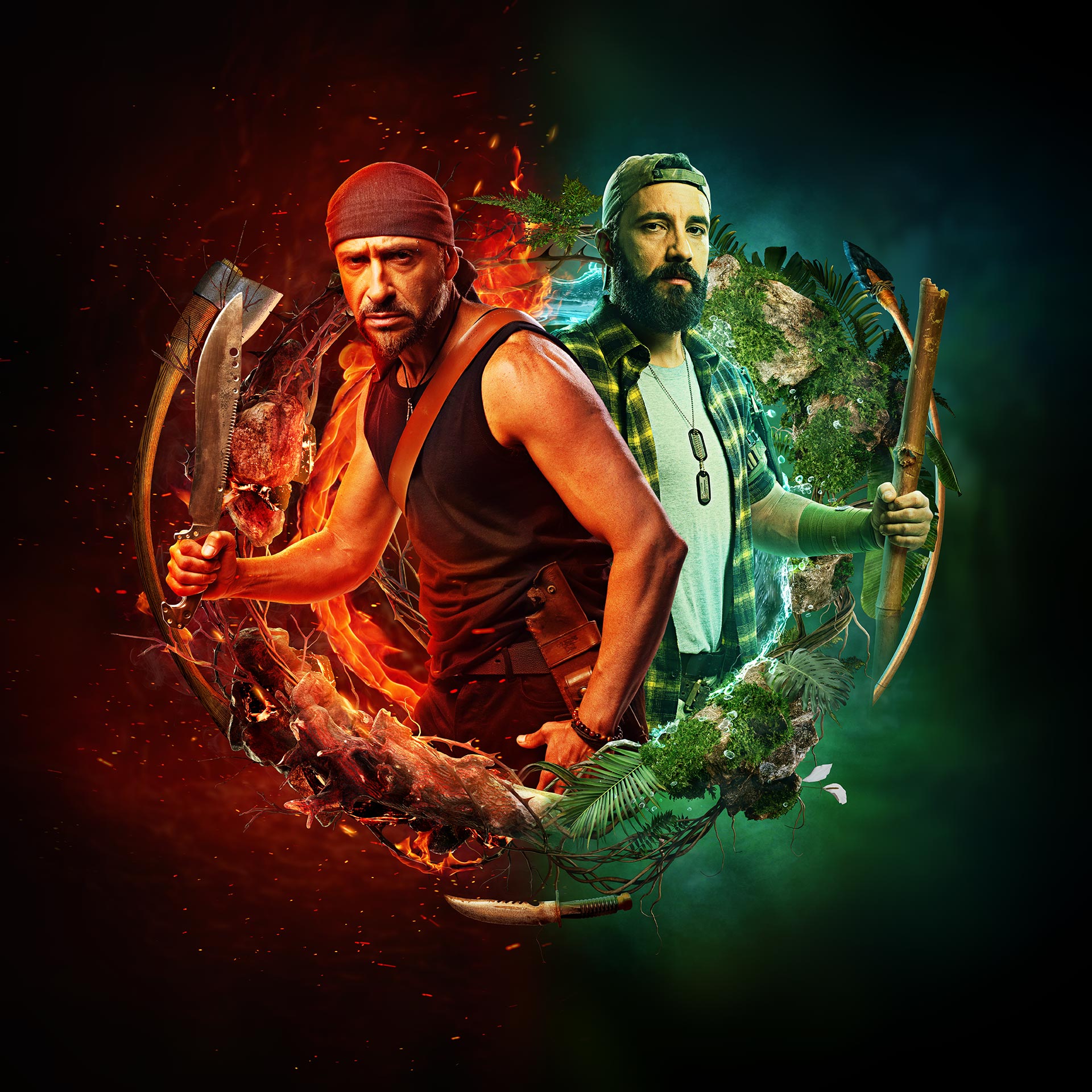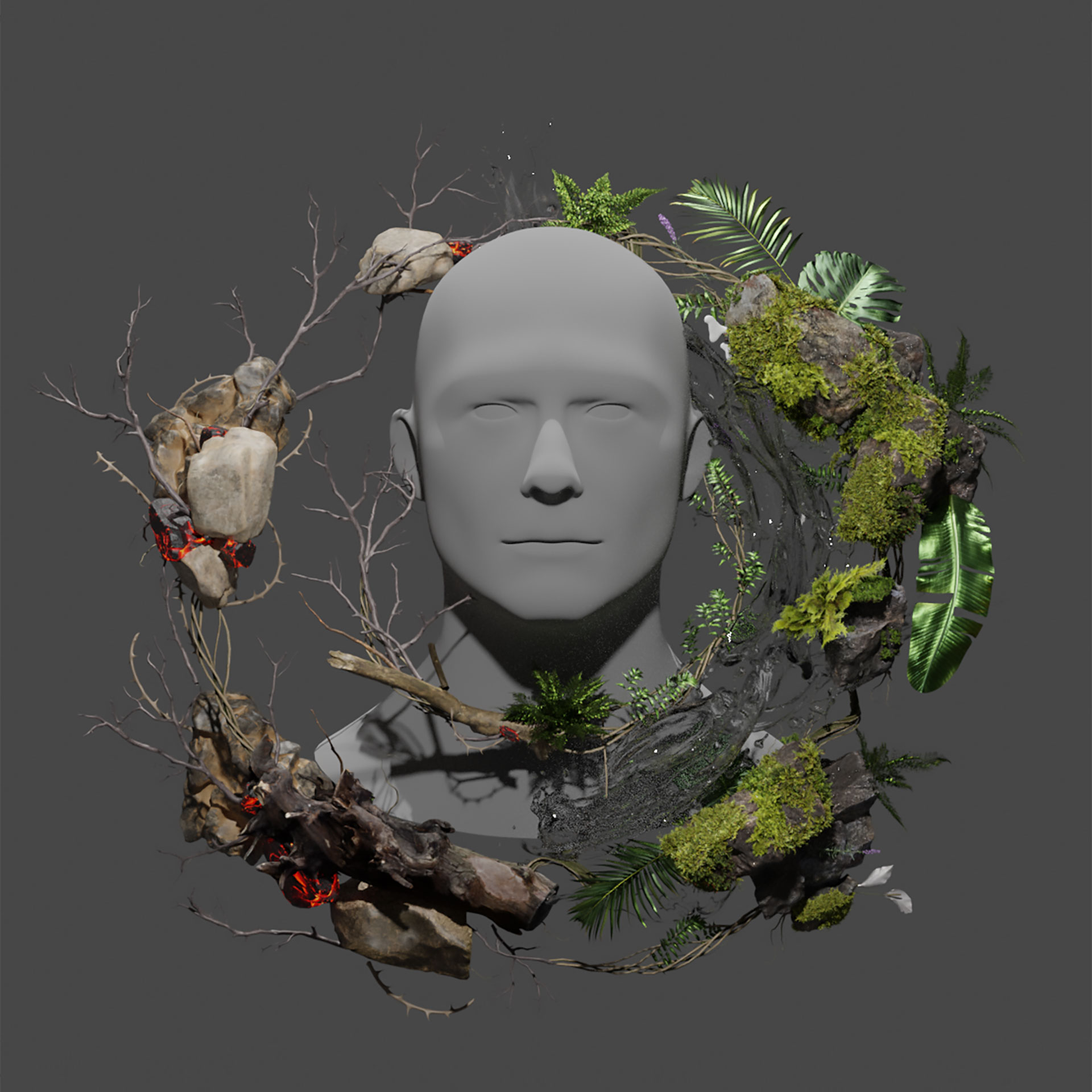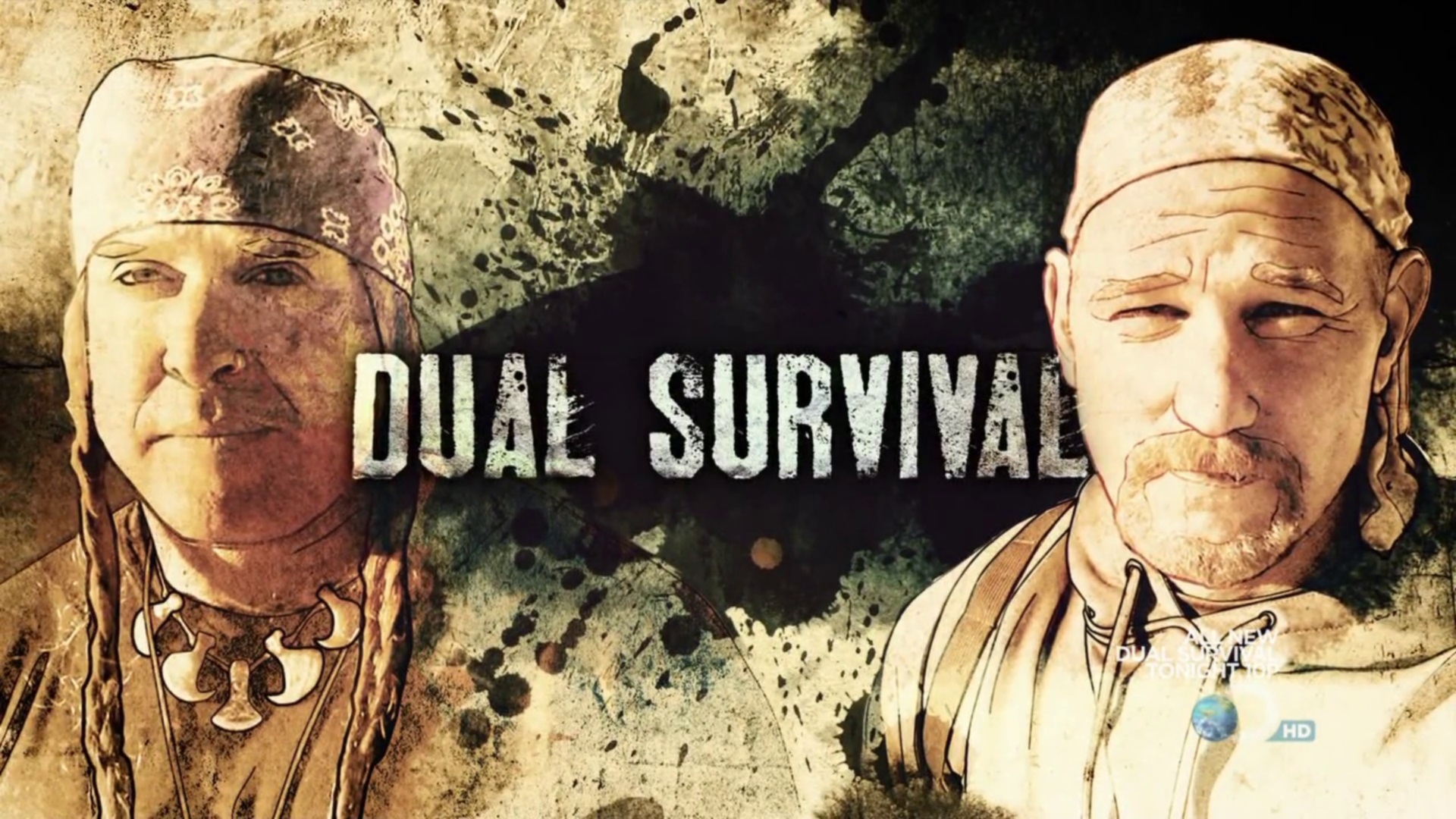Dual Survival Dave: Unpacking The Wilderness Wisdom Of A TV Legend
When you think about surviving in the wild, images of grit and smart thinking probably come to mind, and for many, a certain familiar face pops right up: dual survival dave. This person, a real expert in outdoor living, became a household name thanks to a popular television show. It's almost like he brought the wild right into our living rooms, showing us what it truly takes to make it when things get tough. His unique approach to staying alive in rough spots really got people talking, and his time on the screen left a big mark on how we see survival skills.
He was, you know, a key part of what made the show so compelling. The idea behind "Dual Survival" was to pair up two people with very different ideas about how to handle the wilderness. This setup often led to some pretty interesting moments, as they had to figure out how to work together even when their methods were miles apart. It was a fascinating look at how different survival philosophies could still lead to the same goal: making it out in one piece, which is that, a very big deal.
So, we're going to take a closer look at Dave Canterbury, the first person to join the cast of this reality survival series. We'll explore his background, what he brought to the program, and why his presence made such an impact on people who watched. It's pretty cool to think about how much we learned just by watching him do his thing, really.
Table of Contents
- Who Is Dave Canterbury? A Closer Look
- Dave Canterbury's Survival Philosophy: The 5 Cs
- The Dynamic Duo: Dave and Cody on Dual Survival
- Life After Dual Survival: Dave Canterbury Today
- Frequently Asked Questions About Dual Survival Dave
Who Is Dave Canterbury? A Closer Look
Dave Canterbury, a name that echoes with tales of the wild, is quite a figure in the world of outdoor preparedness. He was the very first person to be part of the reality survival series, "Dual Survival," which aired on the Discovery Channel. When the show's creators were drawing up their plans, they had a very specific vision in mind: they wanted to bring together a person who understood wildlife deeply and someone who had a background in the military. Dave, with his extensive experience, fit the military side of that equation perfectly, you know, which was a good start.
His time in the military, specifically with the U.S. Army, gave him a set of skills that proved invaluable in the challenging situations the show presented. He learned a lot about how to stay alive, how to make do with very little, and how to keep a clear head when things get really tough. These lessons weren't just theoretical for him; they were part of his everyday work. This background meant he came to the show with a very practical, no-nonsense approach to facing nature's difficulties, which is pretty much what people expected.
Beyond his military service, Dave also spent a lot of time in the outdoors, learning about different plants, animals, and how to find food and water. He wasn't just someone who knew how to follow orders; he was someone who had spent years honing his ability to live off the land. This blend of structured training and hands-on experience made him a truly unique person to feature on a program about surviving in difficult places. It's like he had a whole library of useful information in his head, ready to be used, very much so.
Personal Details and Bio Data of Dave Canterbury
| Detail | Information |
|---|---|
| Full Name | Dave Canterbury |
| Known For | First cast member of "Dual Survival" |
| Role on Show | Former Military Man / Survival Expert |
| Background | U.S. Army Veteran, Outdoorsman, Author |
| Survival Philosophy | Focus on practical, primitive skills, often summarized as "The 5 Cs of Survivability" |
| Current Activities | Runs a survival school, continues to teach and share knowledge |
Dave Canterbury's Survival Philosophy: The 5 Cs
Dave Canterbury is widely known for his very clear and simple way of thinking about survival, often called "The 5 Cs of Survivability." This isn't just a catchy phrase; it's a guide for anyone looking to be better prepared for unexpected situations in the wild. He believes that if you have these five basic things, you're in a much better spot to handle whatever comes your way. It's a bit like having a checklist for staying safe, you know, which is really helpful.
The "Cs" stand for cutting tool, combustion device, cover, container, and cordage. A cutting tool, like a good knife, is for tasks such as preparing wood or making other tools. A combustion device, such as a ferro rod or lighter, helps you make fire, which is key for warmth, cooking, and signaling. Cover means something to protect you from the weather, whether that's a tarp or a natural shelter. A container, like a metal pot, is for boiling water to make it safe to drink or for cooking food. And cordage, such as rope or strong string, is for building shelters, making traps, or securing items, so it's very useful.
This philosophy shows Dave's practical side. He focuses on items that are truly essential and multi-purpose, rather than a lot of fancy gear. His teaching often stresses the importance of knowing how to use these simple items effectively, rather than just having them. It's about skill and knowledge, not just stuff. This way of looking at things really resonated with people watching "Dual Survival," as it made survival seem less about big, complex plans and more about mastering a few basic ideas, which, you know, is a good lesson.
He often talks about how these tools, combined with the right mindset, can help you overcome many difficulties. It's not just about surviving for a few hours, but about having the means to keep going for a longer time if needed. His emphasis on these fundamentals has influenced many people who are interested in outdoor preparedness, and it's a system that's pretty easy to remember, too, which helps a lot.
The Dynamic Duo: Dave and Cody on Dual Survival
The magic of "Dual Survival" often came from the interesting pairing of its hosts. Dave Canterbury, with his military background and emphasis on practical tools, was teamed up with Cody Lundin, a person known for his barefoot living and primitive survival ways. This combination created a fascinating tension and learning experience on screen. It was like watching two very different schools of thought try to solve the same problem, which, you know, made for some really good television.
In many episodes, Cody and Dave would find themselves in a tough spot, like needing to get to shore from a lifeboat. As the "My text" tells us, they had to paddle, hunt, and make a shelter until help arrived. Dave would often lean on his structured, gear-focused approach, while Cody might try to use natural resources in a very basic way. This contrast wasn't always smooth, but it showed viewers that there are many paths to staying alive in the wild. It was, you know, a lesson in adaptability.
Their discussions and disagreements were a big part of the show's appeal. Viewers got to see how different tactics could either clash or complement each other. For example, Dave might suggest building a sturdy, well-engineered shelter, while Cody might focus on using minimal effort for a quick, natural cover. These moments highlighted the different philosophies but also showed how, with collaboration, they could still achieve their goals. It was pretty cool to see them work through things, honestly.
The show, featuring Cody Lundin, Paul Christie, Joe Teti, and Dave Canterbury at different times, really put the idea of "two survival experts, with very different mindsets, pair up and use their tactics to collaborate" into action. This concept made "Dual Survival" more than just a show about surviving; it became a study in human interaction under pressure. You could stream "Dual Survival" for free on Pluto TV, which means a lot of people got to see these unique pairings in action, too, which is great.
Their time together showed that even when people have very different ideas, they can still find common ground when the stakes are high. Dave's systematic thinking often provided a strong framework, while Cody's intuitive connection with nature added a different layer. This balance, or sometimes imbalance, made each episode a compelling watch, and it really got you thinking about what you'd do in those situations, you know, it just did.
Life After Dual Survival: Dave Canterbury Today
Even after his time on "Dual Survival," Dave Canterbury has kept very busy sharing his knowledge of the outdoors. He runs a school called "The Pathfinder School," which teaches people about survival skills and how to be prepared. This school is a place where his "5 Cs" philosophy really comes to life, as students get hands-on experience with the tools and techniques he believes are most important. It's pretty much a place for anyone wanting to learn how to handle themselves in the wild, which is a good thing.
He continues to write books and create videos, making his survival wisdom available to a wider audience. His focus remains on practical, usable skills that anyone can learn, regardless of their background. This dedication to teaching shows that his passion for helping people be more self-reliant is still very strong. He believes that everyone can benefit from knowing a few basic ways to stay safe when things don't go as planned, and that's a message he keeps putting out there, very consistently.
Dave's influence extends beyond just TV and his school. He's become a respected voice in the larger community of people who care about preparedness and outdoor living. His straightforward way of explaining things, combined with his real-world experience, has earned him a lot of trust. People look to him for advice on what gear to carry, how to make a fire without matches, or how to find food in the wilderness. It's like he's a go-to person for all things survival, which, you know, is a big deal for many.
Just like how the dual organization in Portugal offers a wide range of certified training courses, sometimes even financed through work compensation funds, Dave provides a similar kind of essential education for the wilderness. The dual organization also develops projects, like the one in partnership with the government of Cape Verde, aiming to set up a professional training system. This shows a shared idea: giving people the right skills helps them in life, whether it's for a job or for staying safe in the wild. You can learn more about our continuous qualification plans on our site, and link to this page for more about our training programs, which is a bit like getting ready for any challenge, really.
So, Dave Canterbury is still very much a part of the survival world, always finding new ways to teach and inspire. His legacy from "Dual Survival" lives on, but his ongoing work in education is what truly shows his commitment to helping others be ready for anything. It's a testament to his belief that everyone should have some basic understanding of how to take care of themselves, which is a pretty good idea, too.
Frequently Asked Questions About Dual Survival Dave
People often have questions about Dave Canterbury and his time on "Dual Survival." Here are some common ones, with some answers to help clear things up.
Is Dave Canterbury still on Dual Survival?
No, Dave Canterbury is not currently on "Dual Survival." He was one of the first cast members when the show began, pairing up with Cody Lundin. The show has had different hosts over its run, but Dave's time on the program ended after the early seasons. He has, you know, moved on to other things since then.
What is Dave Canterbury's survival philosophy?
Dave Canterbury's survival philosophy is centered around what he calls "The 5 Cs of Survivability." These are cutting tool, combustion device, cover, container, and cordage. He believes that having these five basic items, along with the knowledge of how to use them, is key to staying alive in a wilderness situation. It's a very practical and simple way to think about preparedness, which is that, pretty smart.
What did Dave Canterbury do before Dual Survival?
Before his time on "Dual Survival," Dave Canterbury served in the U.S. Army. His military background gave him a lot of practical experience in outdoor living and survival. He also spent many years as an outdoorsman, honing his skills in primitive living and preparedness. So, he had a lot of real-world experience before ever stepping in front of a camera, which, you know, made him a good fit for the show.

DISCOVERY - DUAL SURVIVAL

DISCOVERY - DUAL SURVIVAL

Dual Survival - TheTVDB.com